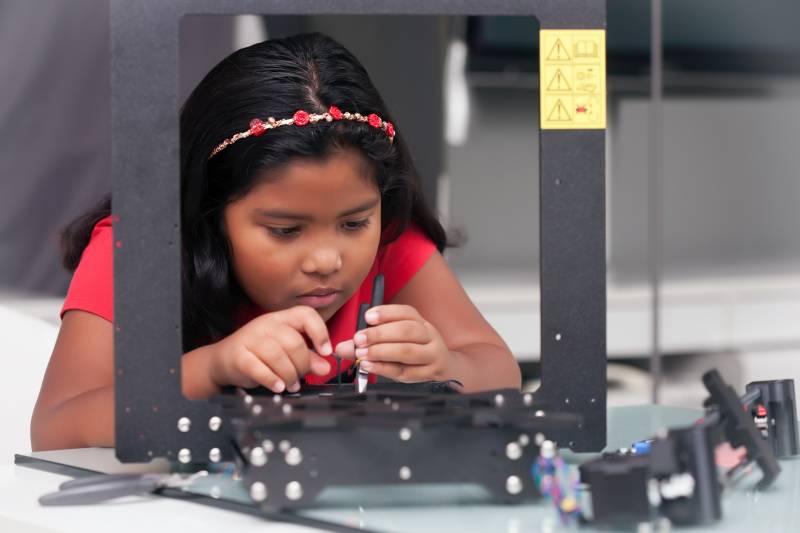You can listen to this episode of the MindShift Podcast on Apple Podcasts, Google Podcasts, NPR One, Spotify, Stitcher or wherever you get your podcasts.
‘Genius’ is a rare title often reserved for adults who have accomplished something extraordinary, like making discoveries after decades of research in their field. But we shortchange ourselves by reserving genius to a select few, according to Gholdy Muhammad, a professor, teacher-trainer and author of the best-selling book, “Cultivating Genius: An Equity Framework for Culturally and Historically Responsive Literacy.”
“Genius means how are our students intellectually creative, smart, what can they do that is special, intuitive, innovative,” she said.
She said we have more to gain by starting earlier and seeing genius as the brilliance that can be developed in each person. There are many examples of prominent people who got their start in childhood, often when a caring adult, such as a teacher, identified that spark and helped the child reach their potential. After all, those adults who we consider genius got their start somewhere in childhood. For instance, long before Jennifer Doudna won the Nobel prize for her CRISPR gene editing research, she was a high school student who didn’t even see herself as a scientist. She told the Washington Post she didn’t think about becoming a scientist until one person saw the brilliance in her: 10th grade chemistry teacher Jeannette Wong.
But not everyone gets a Jeanette Wong at the front of their class. And it’s not that teachers can’t see potential. As a teacher-trainer, Gholdy Muhammad noticed a gap between how teachers saw the brilliance in their own children vs. what they saw in the students they taught.

